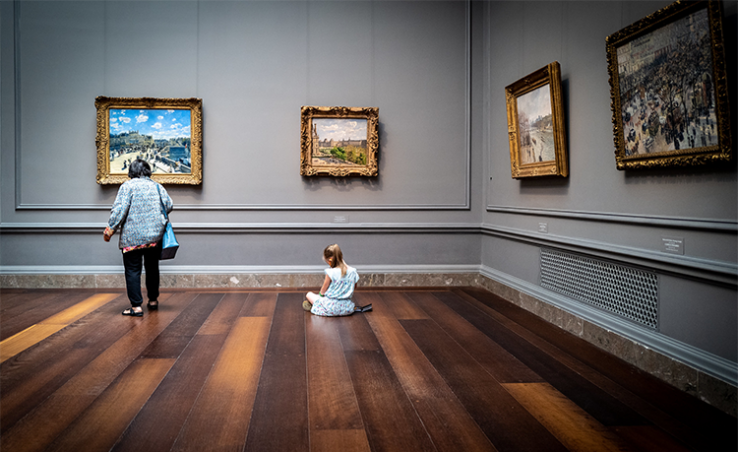
Image: Phil Roeder [CC BY 2.0], via Flickr
Helping inform government policy with an AHRC scoping project
The monetary value of scoping call grants is usually far exceeded by their relative prestige and potential impact, and the Arts and Humanities Research Council’s latest promises to be no different.
The AHRC has joined up with the Department for Digital, Culture, Media and Sport (DCMS) to deliver a study that will provide some of the evidence for the government’s forthcoming Culture and Heritage Capital Programme. For this, the AHRC plans to award just one team up to £120,000 (at 80 per cent of the full economic cost of the project) to survey the existing evidence in a relevant field. The project must start in September 2021 and last six months. The deadline for applications is 10 August.
Kristine Zaidi, associate director of programmes at AHRC, has some pointers for those planning to apply.
What is DCMS’s Culture and Heritage Capital Programme?
The aim of the programme is to create publicly available statistics and guidance that will allow for improved articulation of culture and heritage in decision-making. There is already sector-specific guidance available to value the impact of interventions, for example in health, transport or the environment, but there is none on culture and heritage.
What role will the winning project play in that programme?
It will help build a robust evidence base on how we can approach the value of culture and heritage. Although this is a potentially vast area, we acknowledge that there is already a lot of evidence out there that we might not know about. This knowledge has not necessarily been synthesised in a way that helps us to identify any knowledge gaps. The winning project in this scoping call will help us do exactly that and inform the next activities and investments in the programme.
What are the call’s themes?
Our call document sets out 11 suggested evidence gaps to cover. They include using heritage science to understand the relationship between degradation and value, drawing the line between natural capital and culture and heritage capital, and developing more innovative ways of capturing value using technology and data.
Must bids stay within these themes?
No, these themes are there to guide applicants rather than be prescriptive. We also understand that one scoping study cannot address all 11 themes. And, of course, there may be other areas that we haven’t covered, or themes that shouldn’t really be there because we already know enough about them.
How are the applications assessed, and according to what criteria?
We will convene an assessment panel of experts to look at all applications. This will include academic experts as well as members from DCMS, and experts from the cultural and heritage sector. The main criteria are making sure that projects are logically and realistically planned; a robust methodology that is justified and fit for purpose; an interdisciplinary team; and value for money.
What does the funding cover?
The funding covers the salary and associated overhead costs of the principal investigator, co-investigator and research assistant, as well as a small amount of costs relating to collaborating organisations whose expertise or knowledge is required. It also covers travel and subsistence costs.
Do you have an ideal applicant in mind?
The successful applicants will be a multidisciplinary team of experts within their fields. I would envisage that the team will comprise experts from different disciplines appropriate to the scoping study, such as humanities and heritage science experts. I would also emphasise the importance of knowledge of economic techniques and methodologies. As such, the team will include at least one economist with a strong track record in their field. Ultimately, we want a team of people with complementary skills.
What are the fundamental elements that all bids should include?
Proposals should have a strong case for support in terms of their approach and the methodology they are going to use. How they are going to approach prioritisation is particularly important, as well as how they plan to work with AHRC and DCMS, because I envisage it will be an ongoing collaborative effort.
Does the nature of the project as a scoping rather than a research call have any implications that applicants should consider?
It’s a complex project over a short period so applicants need to have realistic expectations about what they can deliver during that time. It requires very good planning and a good existing knowledge of the field because of the intensity of the scoping activity. Applications should show that they have a solid starting point and that they will be able to present a robust, prioritised plan within a month that will form the basis of the project. This will give the panel the confidence that this is an experienced team.
This is an extract from an article in Research Professional’s Funding Insight service. To subscribe contact sales@researchresearch.com